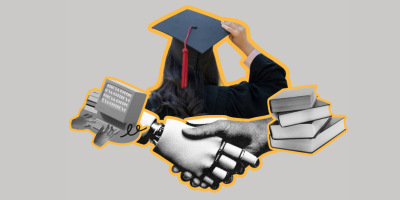
Humanities and social sciences provide a comprehensive understanding of human society and culture, including history, language, literature, philosophy, psychology, and sociology.
They help develop critical thinking, creativity, and empathy and provide a framework for ethical and moral decision-making.
These disciplines also contribute to the development of effective communication skills and provide insights into social, economic, and political issues, allowing individuals to make informed decisions and engage in constructive discussions on important societal topics.
The field of humanities and social sciences focuses on the human being and groups of humans as their main area of interest and study. They help us understand the complex and layered processes that are behind various social phenomena and interpersonal relationships. The studies in these fields are essential to understand the deeper problems of society and solving the underlying issues in order to create a healthier society.
Unfortunately, with a growing focus on technological developments and tech-related fields, the humanities and social sciences remain undervalued. This is especially true when it comes to career choices.
In Armenia, many people, especially youngsters, prefer to continue their profession in a more financially rewarding career due to the perception that humanities and social sciences are not as valuable as the STEM fields. Furthermore, they are deemed to be more practical, relevant and important skills in today’s society and offer a clearer path to tangible economic benefits.
Additionally, funding for humanities and social sciences programs has decreased in recent years, which has led to declining enrollment in these fields. In many parts of the world, including Armenia, there are more scholarships available for STEM programs than for humanities and social sciences. Thus, there are more opportunities out there for students pursuing careers in STEM than there are for students in humanities and social sciences.
However, it is essential to note that humanities and social sciences are equally important for a well-rounded education and provide a foundation for critical thinking, empathy, and cultural understanding, all of which are crucial for personal and societal growth.
In the midst of the hype around technological developments, one starts to fear that the most essential of all things, such as the human aspect of our realities and its centrality, will be forgotten. With that essential pillar missing from the center of our attention, it is quite worrisome to think about what the world will look like in the near future.
This is not to say that technological developments are in any way unwelcome, as they have revolutionized our lives for the better. However, it is important to remember that without the understanding and input of humanities and social sciences, these technological developments could have easily turned into weapons. One quick glance at the history of the past few centuries is enough to convince us that this is the case.
What can we do to change that?
Luckily, there are many ways to make sure that this pessimistic scenario does not materialize itself. To prevent it, we can start by supporting research in the humanities and social sciences and valuing contributions to the knowledge and understanding that can help reinforce the importance of these fields.
We can encourage interdisciplinary collaboration and promote the diversity of inputs from different academic backgrounds. This will ensure more well-rounded and integrated solutions to real-world problems and will have a more sustainable impact in the long run.
The long-term solution lies in educating and raising awareness among the public and society at large. This will prepare a more informed generation ready to tackle problems that combine the perspectives from various disciplines.
Meanwhile, there are some immediate steps that accompany long-term actions. One of them can be making changes in policies to ensure more opportunities and availability of resources for people in humanities and social sciences.
These efforts can work together towards changing the perception of the value of humanities and social sciences and will require a coordinated effort from educators, policymakers, and our society.













